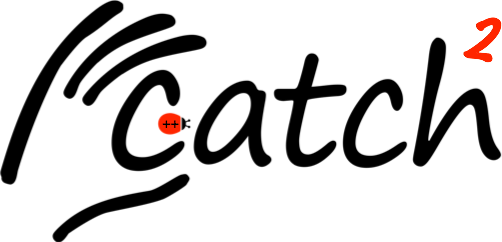mirror of
https://github.com/catchorg/Catch2.git
synced 2025-12-12 21:29:33 +01:00
e92b9c07c3a7b8b3c40590a191bd2f7fb59cd268
Unlike the relatively non-invasive old way of capturing stdout/stderr, this new way is also able to capture output from C's stdlib functions such as `printf`. This is done by redirecting stdout and stderr file descriptors to a file, and then reading this file back. This approach has two sizeable drawbacks: 1) Performance, obviously. Previously an installed capture made the program run faster (as long as it was then discarded), because a call to `std::cout` did not result in text output to the console. This new capture method in fact forces disk IO. While it is likely that any modern OS will keep this file in memory-cache and might never actually issue the IO to the backing storage, it is still a possibility and calls to the file system are not free. 2) Nonportability. While POSIX is usually assumed portable, and this implementation relies only on a very common parts of it, it is no longer standard C++ (or just plain C) and thus might not be available on some obscure platforms. Different C libs might also implement the relevant functions in a less-than-useful ways (e.g. MS's `tmpfile` generates a temp file inside system folder, so it will not work without elevated privileges and thus is useless). These two drawbacks mean that, at least for now, the new capture is opt-in. To opt-in, `CATCH_CONFIG_EXPERIMENTAL_REDIRECT` needs to be defined in the implementation file. Closes #1243
The latest version of the single header can be downloaded directly using this link
Catch2 is released!
If you've been using an earlier version of Catch, please see the Breaking Changes section of the release notes before moving to Catch2. You might also like to read this blog post for more details.
What's the Catch?
Catch2 stands for C++ Automated Test Cases in a Header and is a multi-paradigm test framework for C++. which also supports Objective-C (and maybe C). It is primarily distributed as a single header file, although certain extensions may require additional headers.
How to use it
This documentation comprises these three parts:
- Why do we need yet another C++ Test Framework?
- Tutorial - getting started
- Reference section - all the details
More
- Issues and bugs can be raised on the Issue tracker on GitHub
- For discussion or questions please use the dedicated Google Groups forum
- See who else is using Catch2
Description
A modern, C++-native, test framework for unit-tests, TDD and BDD - using C++14, C++17 and later (C++11 support is in v2.x branch, and C++03 on the Catch1.x branch)
Readme
82 MiB
Languages
C++
90%
CMake
5.5%
Python
3.4%
Meson
0.6%
Starlark
0.3%


